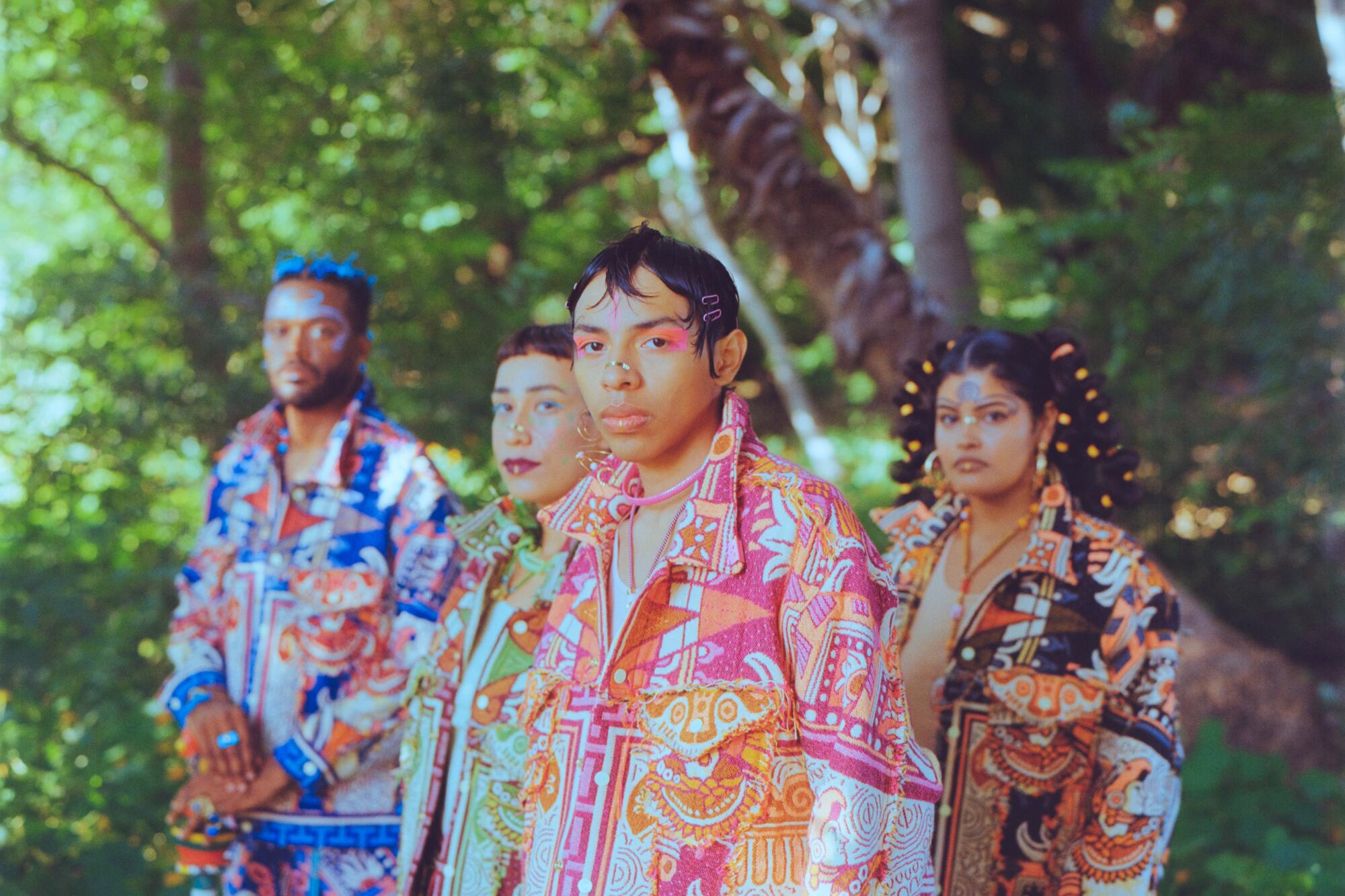
- Share via
On the corner of an empty lot in Avocado Heights may lie the entrance to another dimension — at least that’s how Brenda Equihua imagined it when she stumbled onto an opening in the brush. A bed of lush neon green weeds awaited her, cushioning her feet as she maneuvered through the endless spurts of orange nasturtiums. A cluster of old trees canopied her from above, creating a dance of shadow and light that streamed in through the branches. Brenda felt it immediately: This place had to be the scene for her new collection, Origins, which she refers to as “portal wear.”
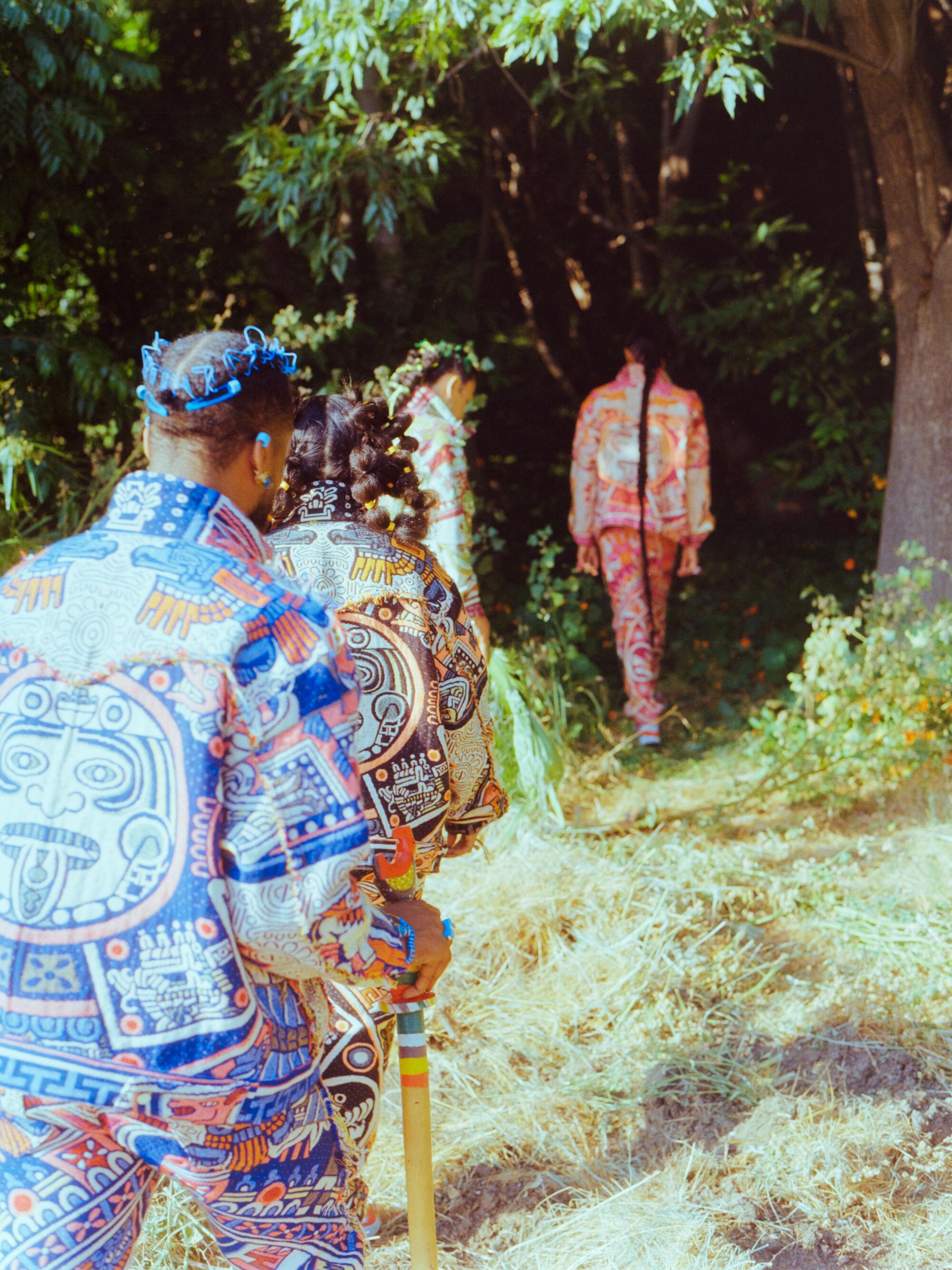
The story of Origins starts in central Mexico, where, on a trip sourcing special blankets for Equihua, the designer’s brand that’s become known for repurposing Mexican textiles into high fashion, she found a piece that was “talking to her.” It was a colorful blanket depicting the Aztec calendar made out of acrylic and polyester (“the story of Mexico before it was even called Mexico,” she says). Once Brenda started to work with the cloth, its intricate design chock-full of symbolic imagery, she started to imagine “ancestors and light workers from the past and future traveling to teach us what is important, to show us what was lost, what they learned from their lifetimes.”
The idea started to expand and grow a richer backstory as Brenda spent more time with the fabric. While she was reminded of the ancestors and how they might teach us to create a better world, she also knew that these were the kinds of teachings that were already inside us, things we know intuitively when we’re children. “It’s the time in our lives we seem to believe in ourselves the most,” says Brenda about childhood. “We watch these superhero light workers like ‘Captain Planet,’ ‘Power Rangers’ and ‘Care Bears’ who show us their powers. We take on these ideas when we’re in the world of imagination. But as we get older, it’s considered weird to talk about ourselves as otherworldly, majestic or powerful.” Another idea that kept coming up in the creative process was optimism — how, in order to be optimistic, a person must be inherently futuristic.
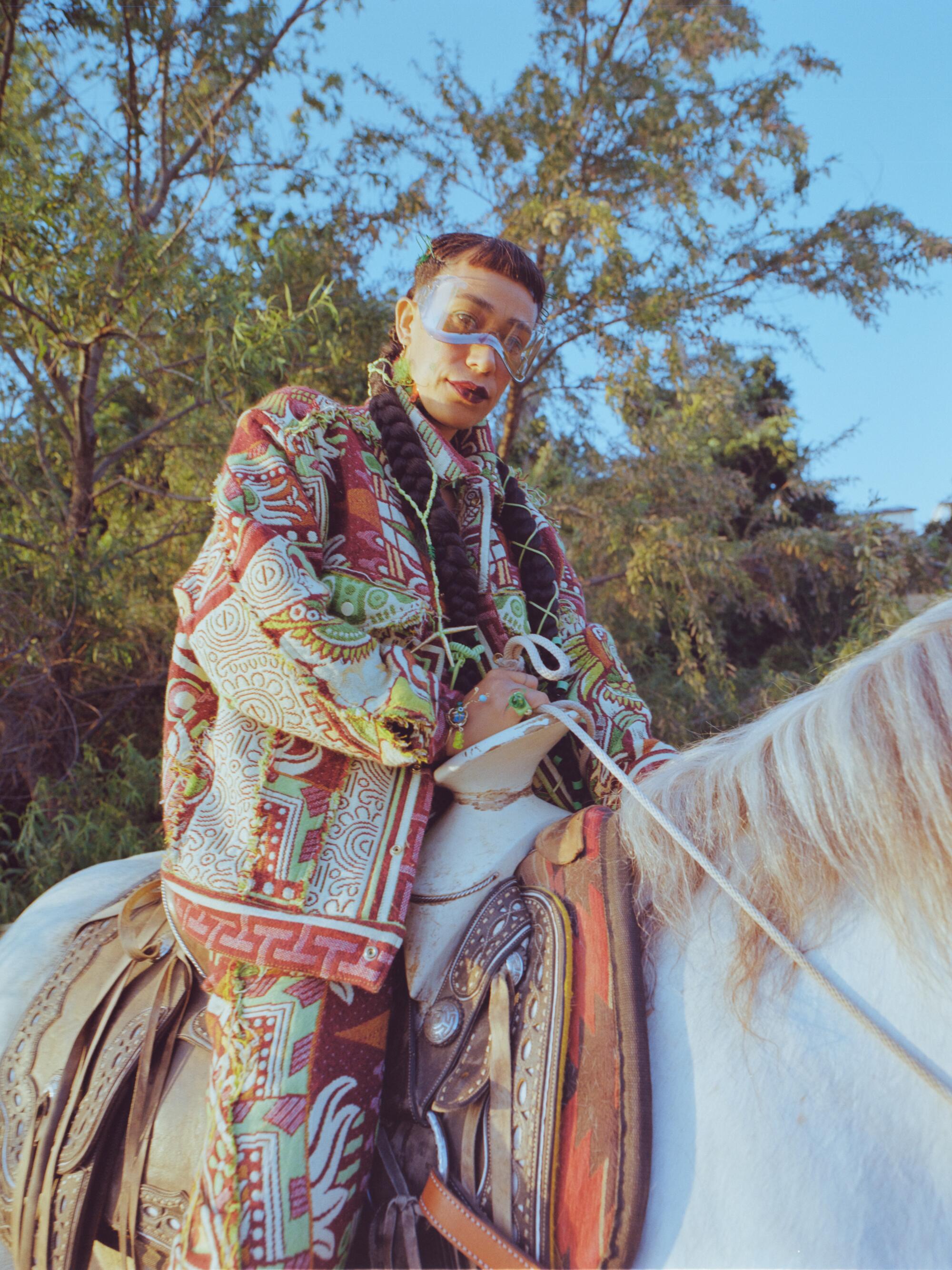
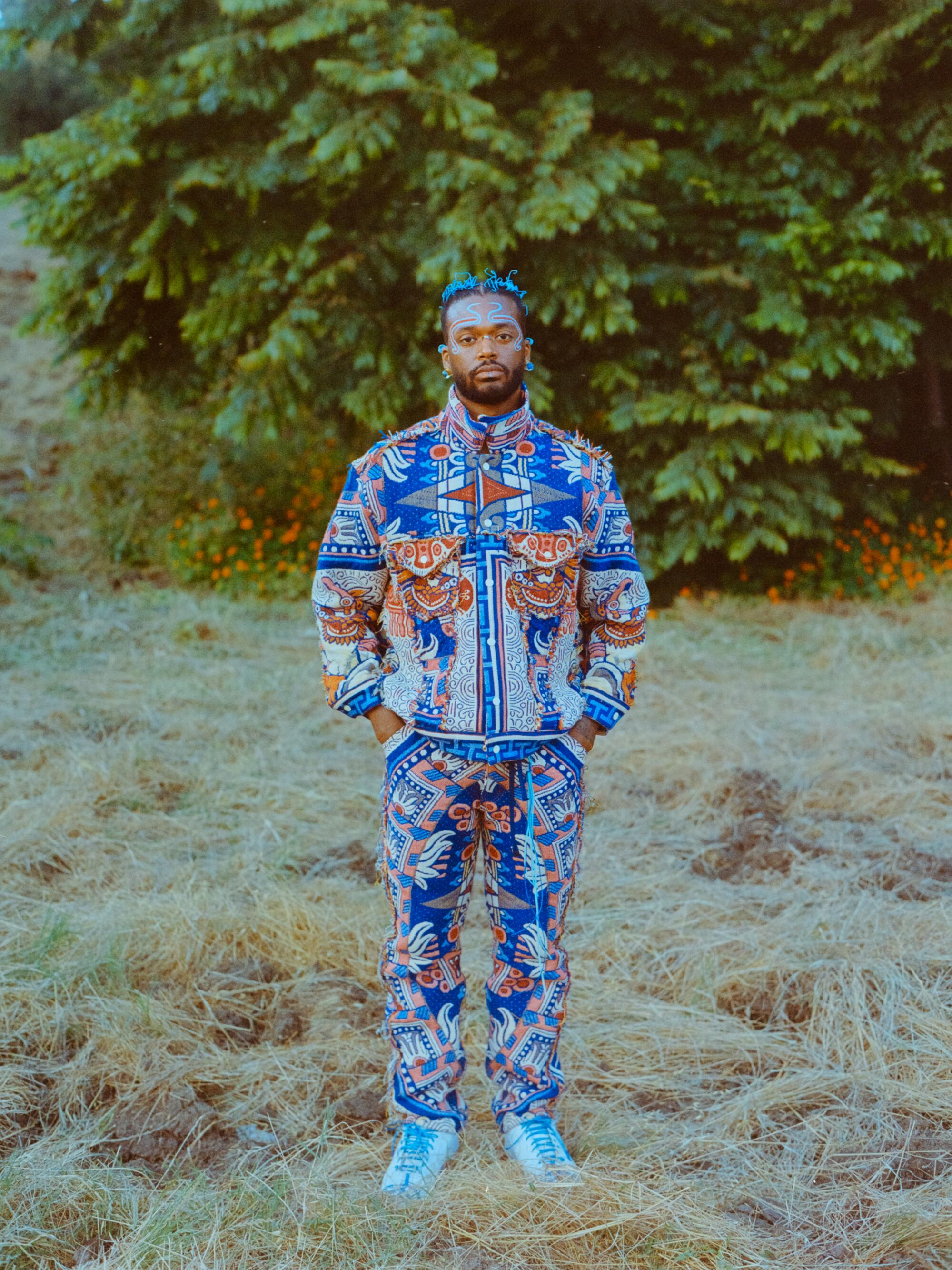
Ancestry, futurism, mysticism: What does it look like to distill these concepts into something tangible that you can put on your body; something that, in Brenda’s view, has the capability to transport you? The collection is comprised of four sets of jackets and pants, their silhouettes modeled after classic Levi’s denim. They come in four vivid colorways that are meant to evoke the elements. A red, pink and orange suit, dubbed Bougainvillea Pink, represents fire. A blue, red and cream fit, called Neptune Blue, feels like water. A green and mahogany brown ensemble, known as Chayote Green, looks like earth. And an orange, cream and taupe colorway, which Brenda calls Monarca Orange, summons the wind. You could spend an hour looking at each piece, discovering new symbols, creatures and colors in its design. Each one feels like a respective uniform, representing where you come from and what you connect to.
With the presentation of Origins, Brenda is essentially saying, “Choose your fighter.”
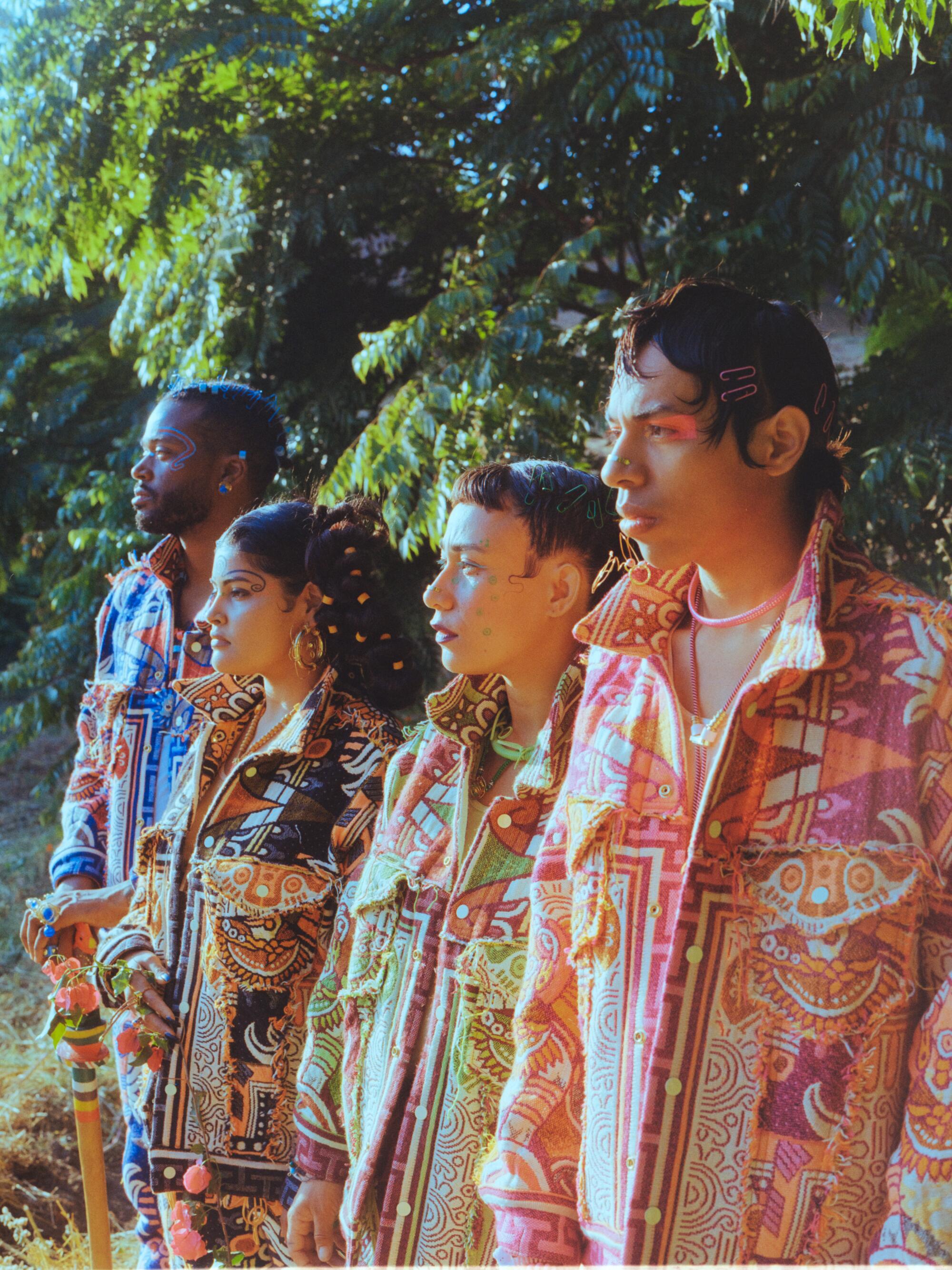
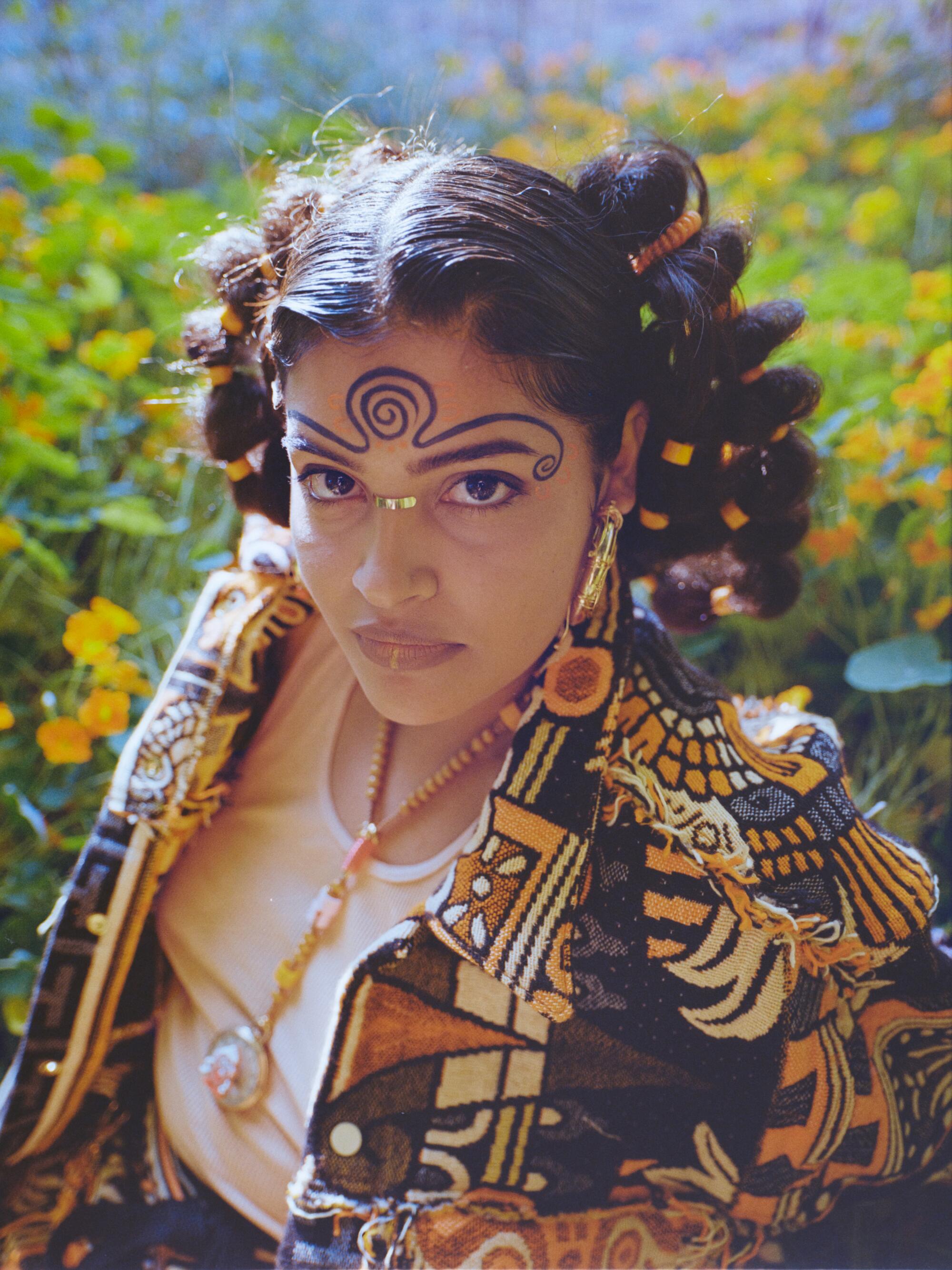
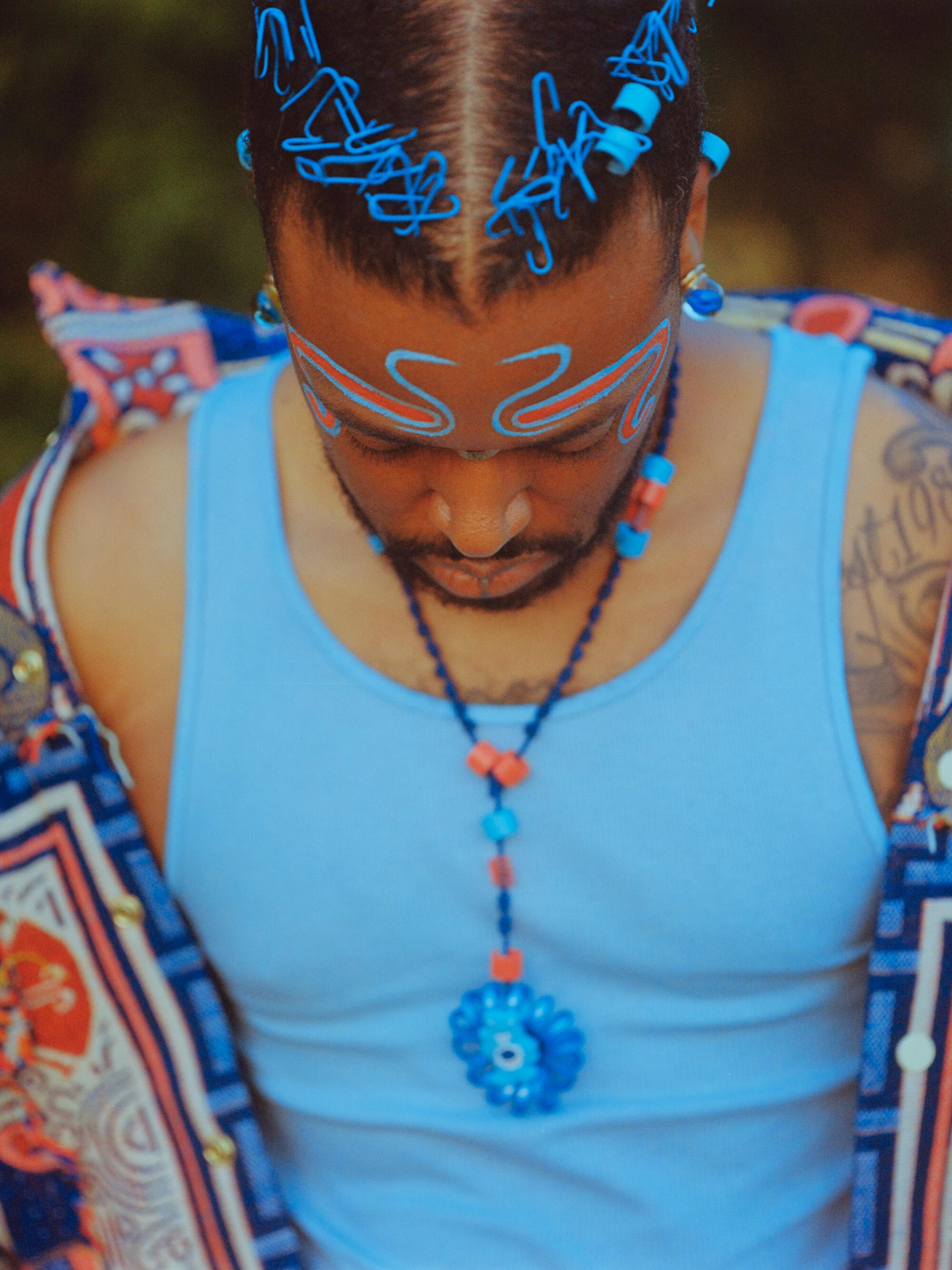
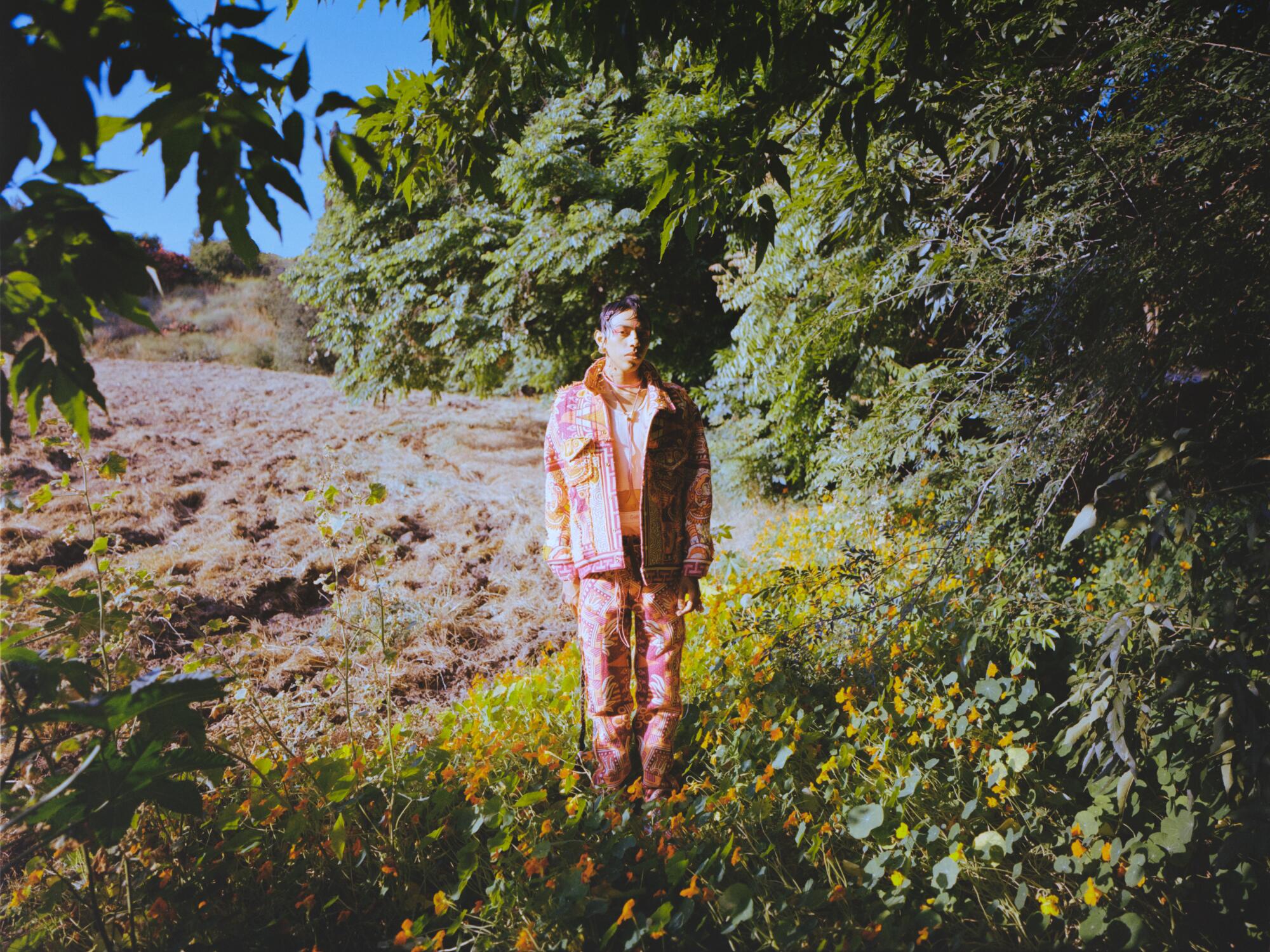
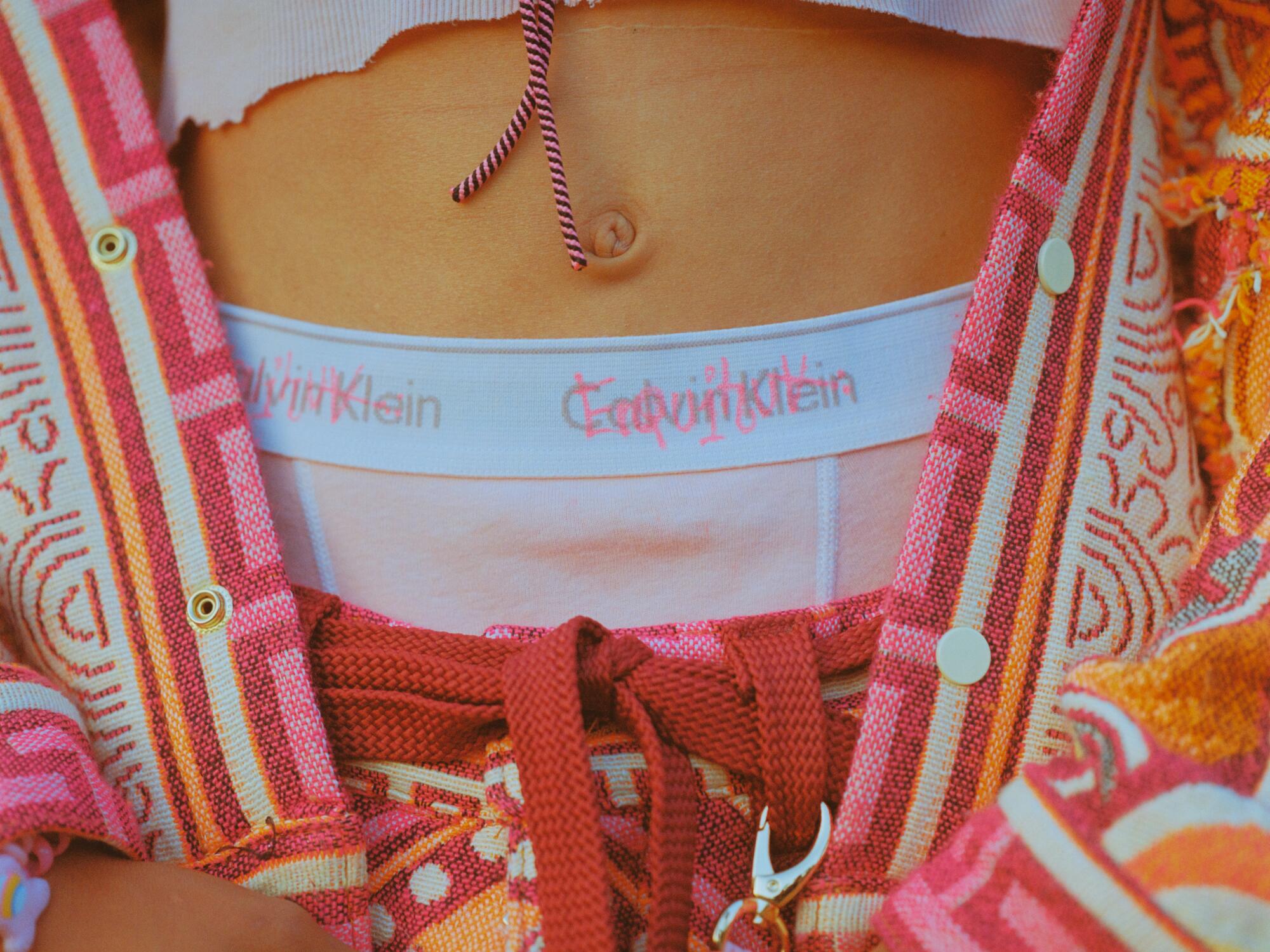
The clothes came alive in a photo shoot that one gray May day in Avocado Heights. Working with Samuel Vazquez, an artist and activist from the area who owns Rancho Tierra Caliente, Brenda built a world for her clothes that mirrored the one she had in her imagination.
“It was unfolding for me like a movie,” says Brenda. She knew she wanted to include Vazquez’s horses — Paloma, Chulo, La Lumbre and Luna — in the shoot because they felt like the only living creatures mythical enough to be a vehicle for how her imagined entities (a.k.a. the models wearing the clothes) would present themselves to us. In choosing the models, it was clear that AJ Girard was water, Maria Maea was earth, Jesus Garcia was fire, and Jamie Foster was wind. The location was scouted with Vazquez: an open and rugged stretch of land with superblooms in its cool, dark edges. “It had to look like they’re emerging from some sort of space that’s unrecognizable; it’s not a place that any of us know,” says Brenda.
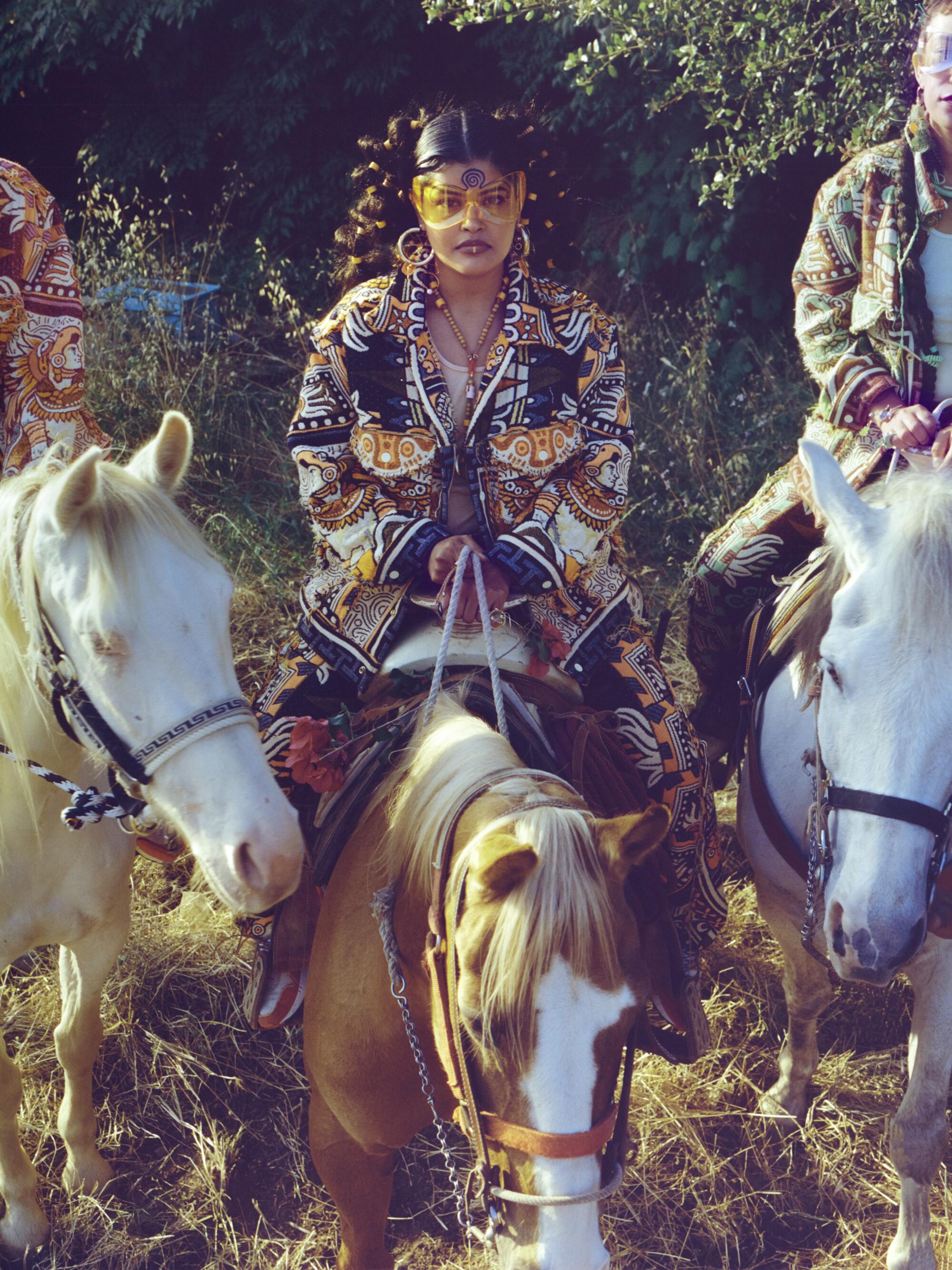
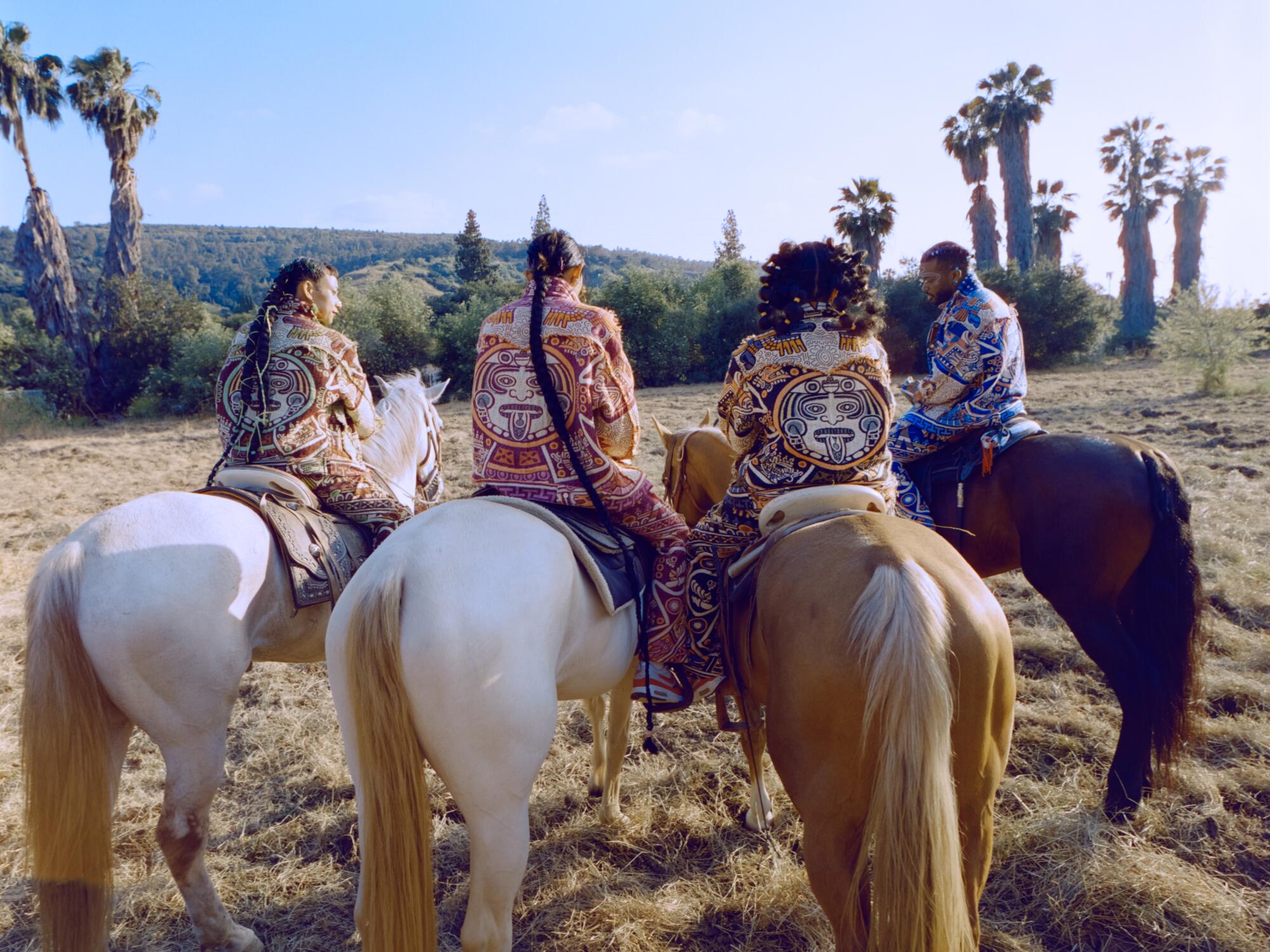
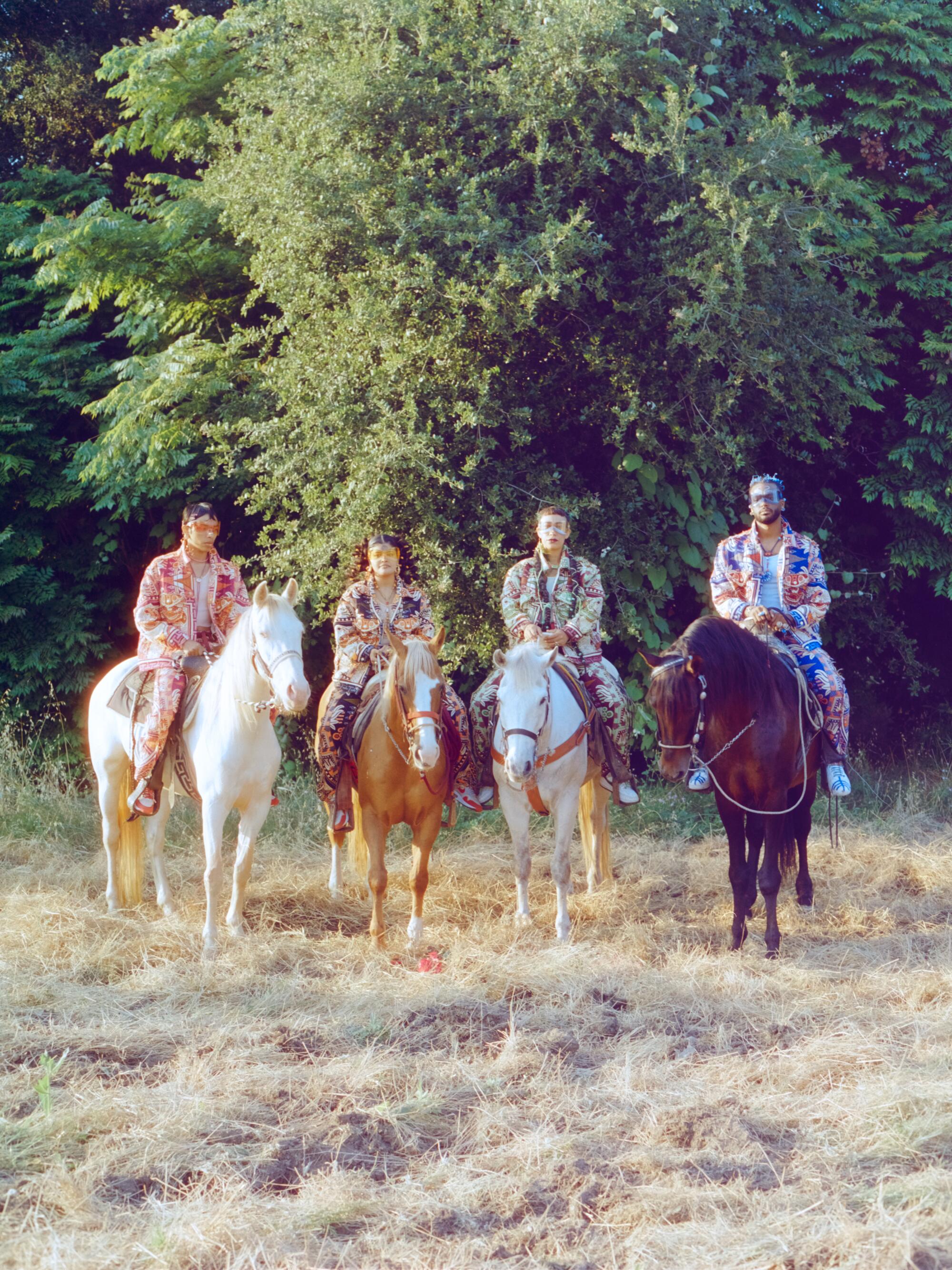
With the support of stylist Tony Soto, each model’s look was molded according to their respective element through the details. Handmade jewelry, all by Equihua, took inspiration from children‘s toys — the kinds of items that we might have regarded as magical totems when we were young, like marbles or wooden beads you’d play with in waiting rooms. Four pairs of Nikes were customized to match the color scheme of each outfit. Hair, done by Tanya Melendez, and makeup, by Gabrielle Alvarez, reached toward the otherworldly through long braids that reached down to the waist and intricate eyeliner art that served as symbols of where each model came from. The look might be described as Aztec raver — a splash of vibrant color, childlike sensibility and sportiness. “I’d love for people to see this and be like, ‘That feels familiar — I feel like I’ve felt this before,’” says Brenda about the clothes. “It taps into something they can’t even really describe, but they can really feel.”
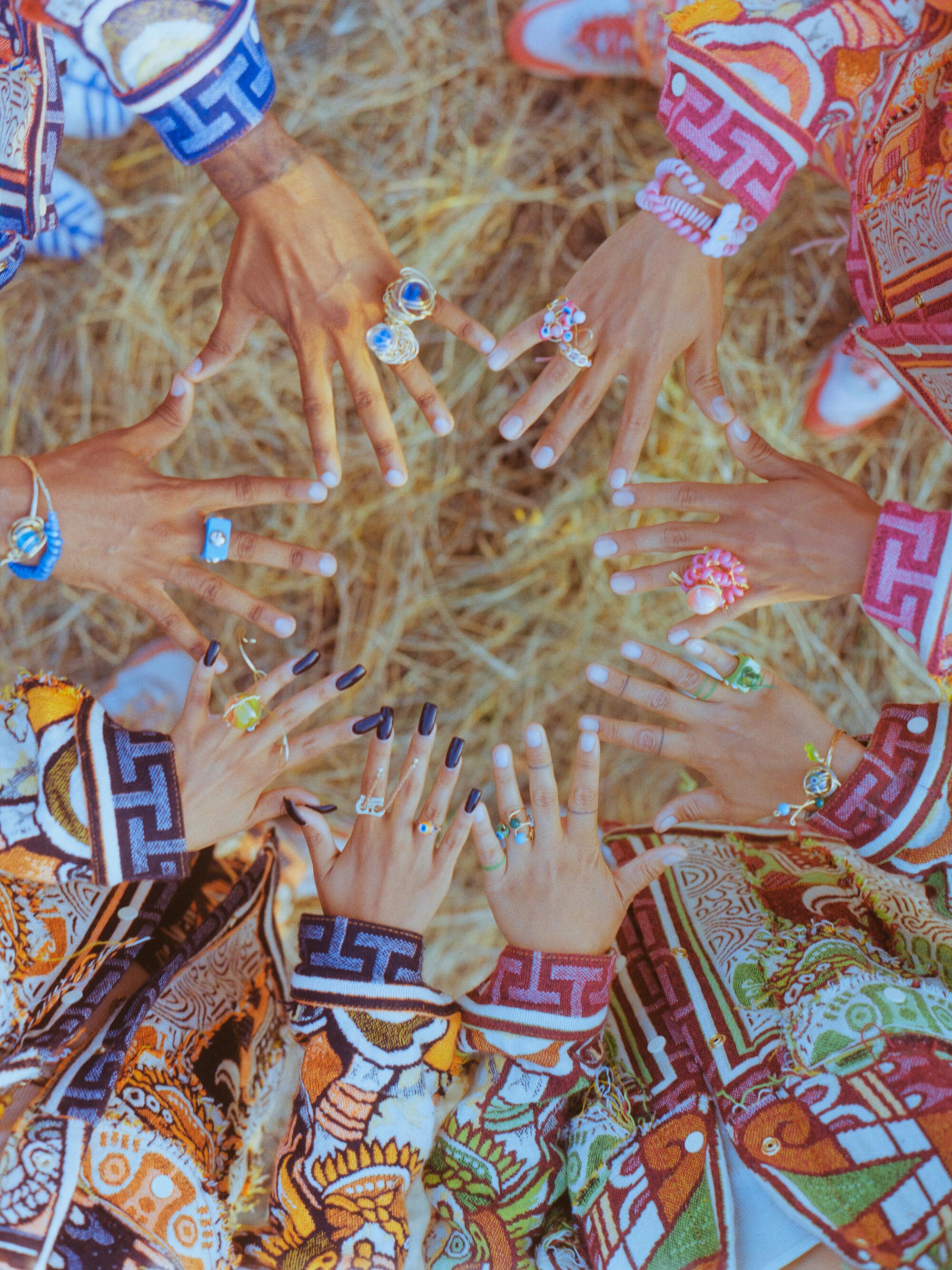
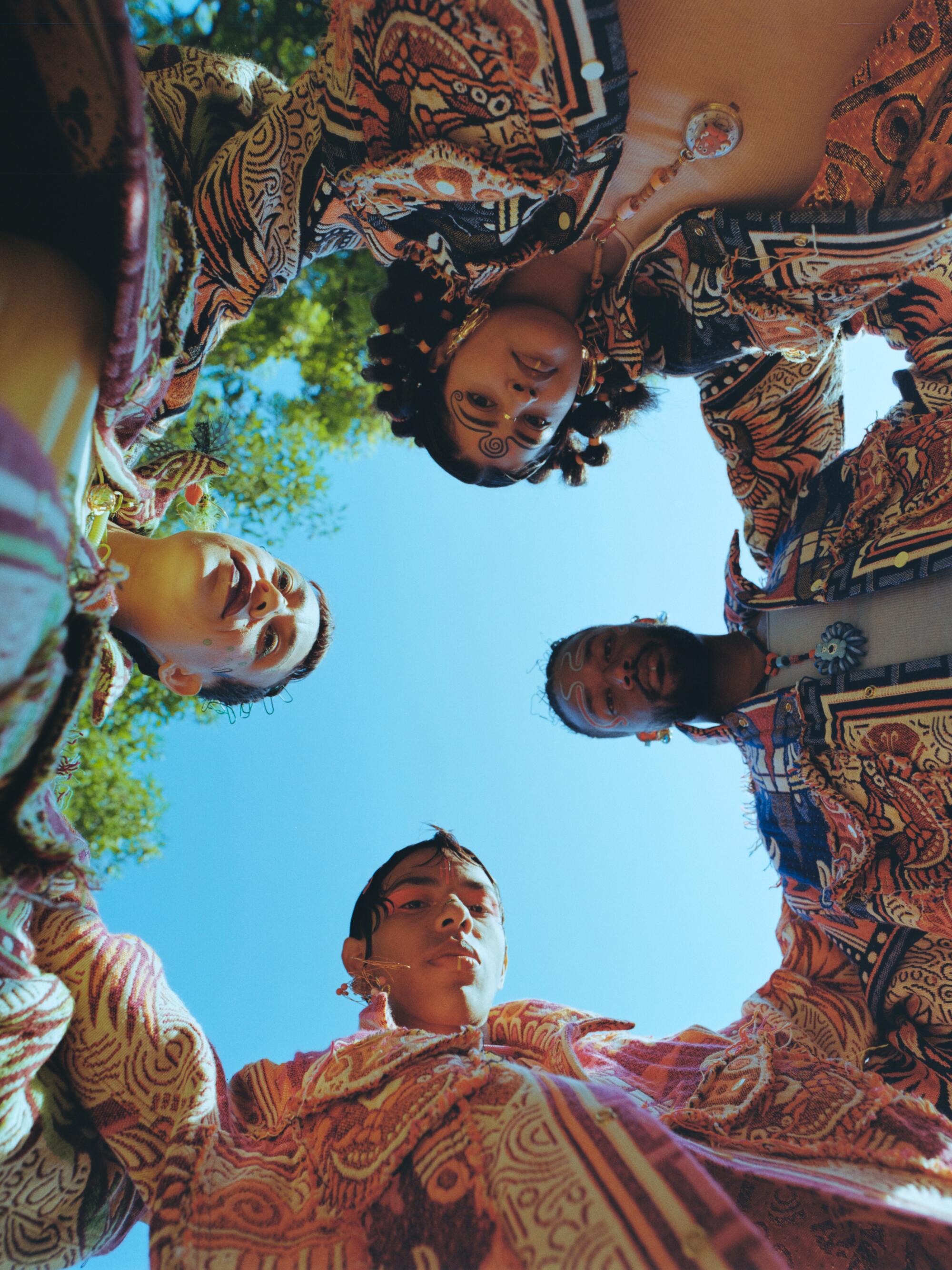
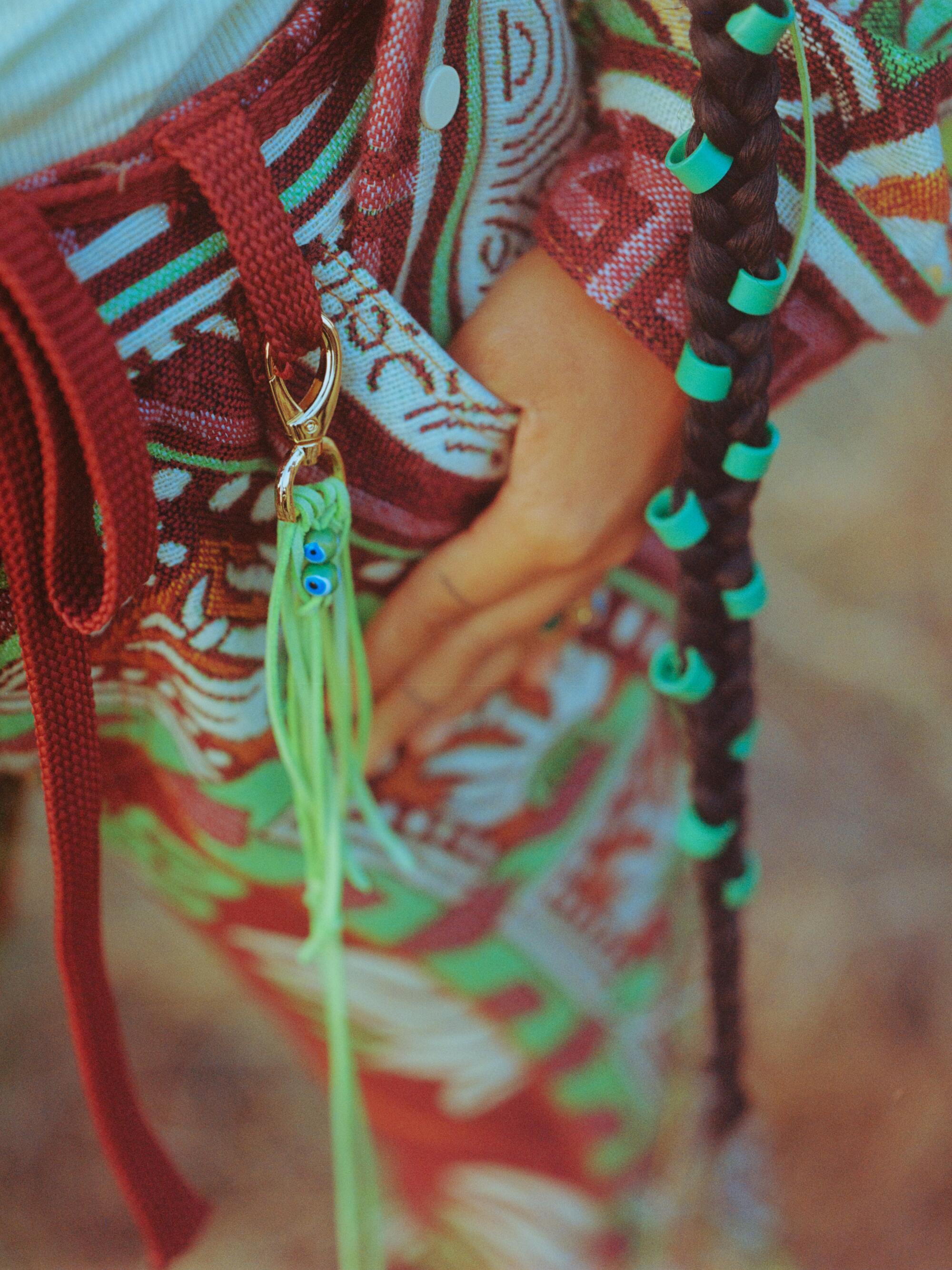
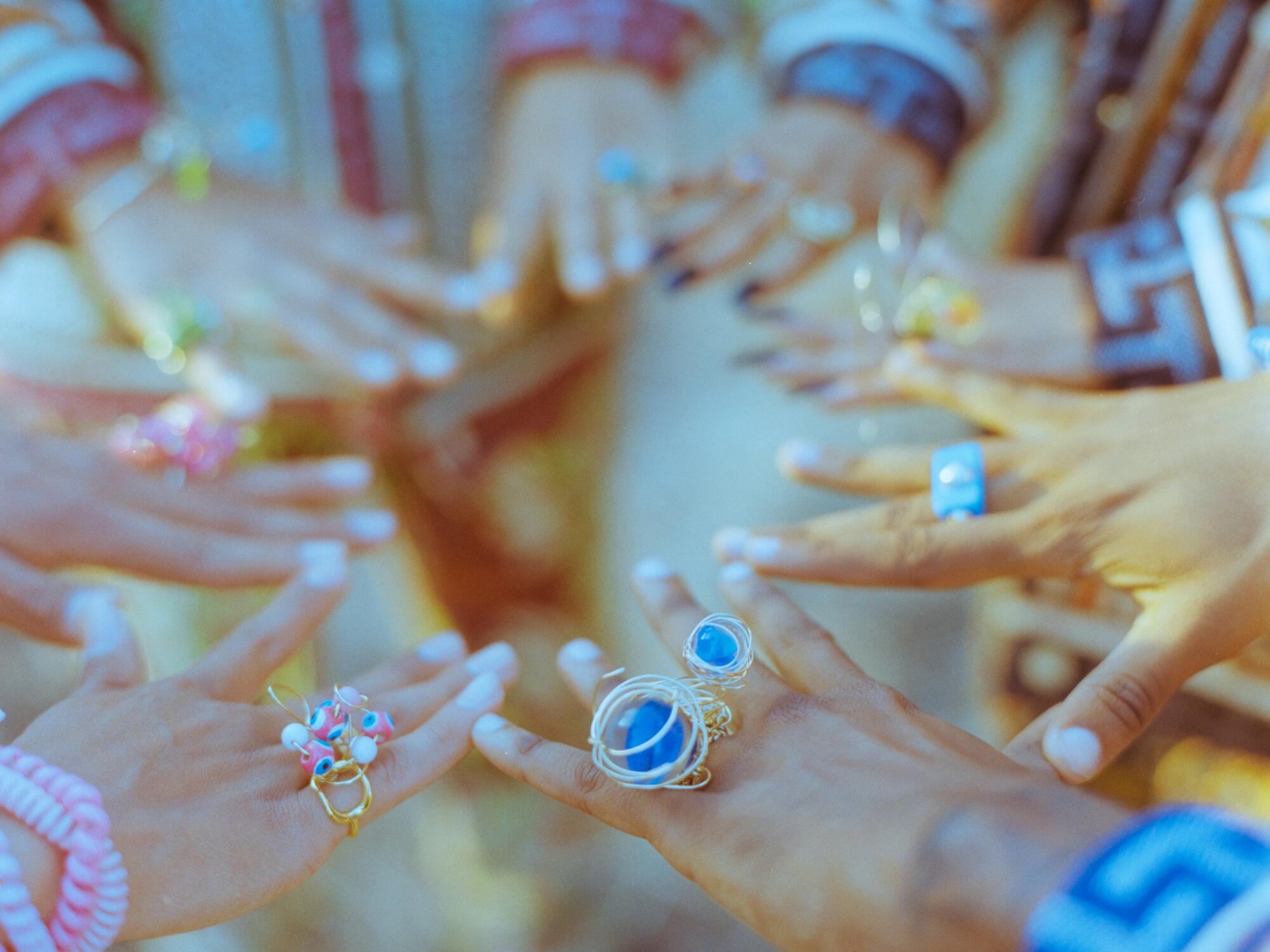
Origins is the kind of collection made for connecting to parts of yourself you may not have realized were missing until you throw on one of the perfectly boxy jackets. This can happen in central Mexico or Avocado Heights; it can also happen walking down Los Angeles Street in DTLA on a half-sunny, half-overcast day — with a hieroglyph on your back, you become more yourself. “People can feel that we are making these things that are going to change them, even if it’s just for that day,” says Brenda. “This story of the Origins is very much tied to the frequency of how we work internally, and how it’s received externally.”
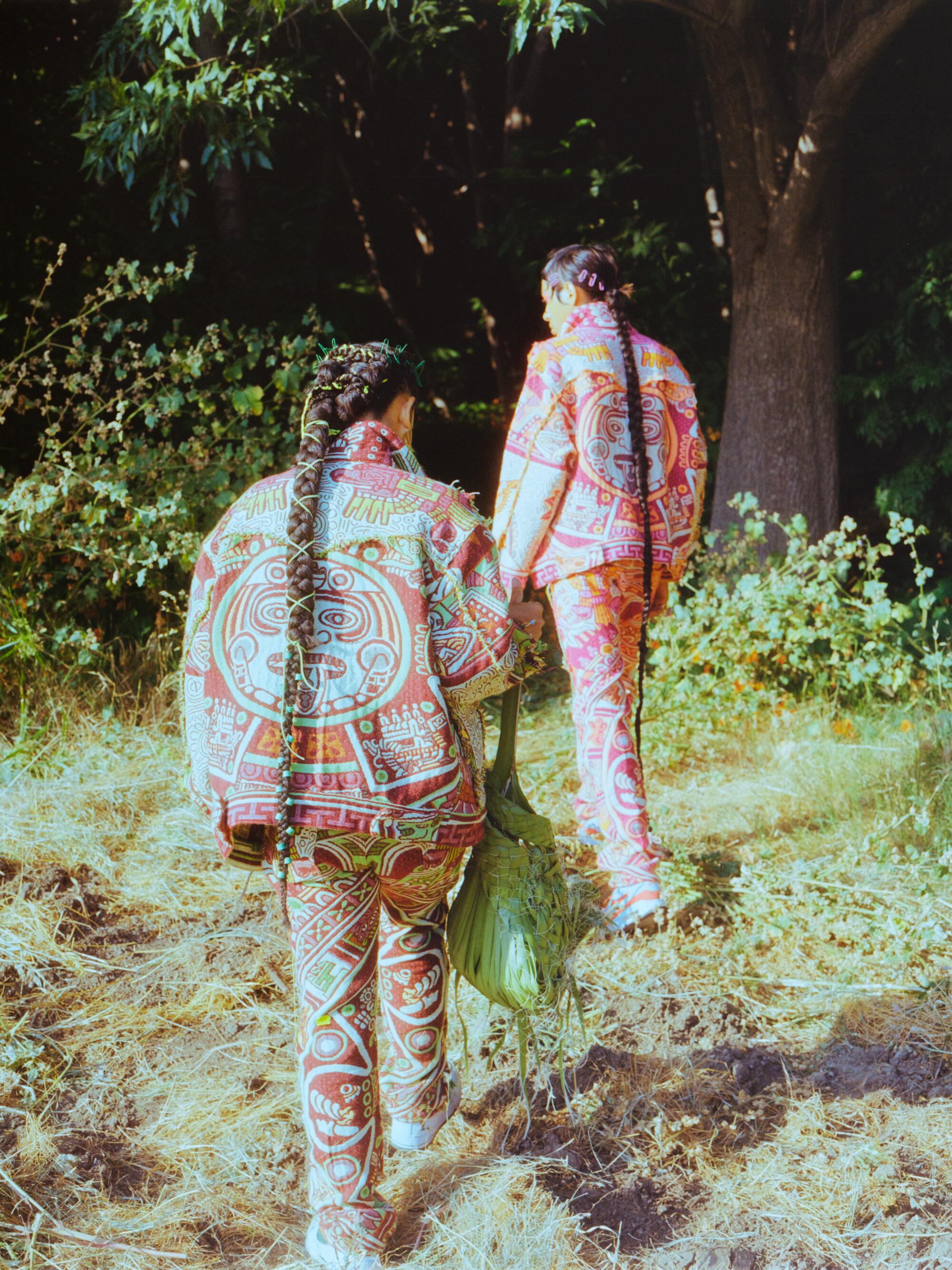
Creative Director: Brenda Equihua
Studio Director: Rebeca Equihua
Horse trainer: Samuel Vazquez
Stylist: Tony Soto
Project Manager: Sorn Sadsad
Photographer: Aiden Samford Ulrich
Video: Ricky Dorn
Hair: Tanya Melendez
Makeup: Gabrielle Alvarez
Models: Maria Maea, AJ Girard, Jesus Garcia and Jamie Foster
Horse Handlers: Jaime Sagrero, Armando Hernandez and Naeem Alston
Horses: Luna, Paloma, Chulo and La Lumbre
Produced by Los Angeles Times Image magazine





